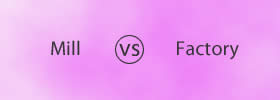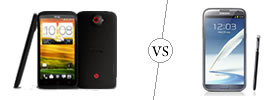Difference between Been and Being
Key difference: The words ‘been’ and ‘being’ are verb forms. ‘Been’ is used in the past tense, whereas ‘Being’ is used in the present tense.
Both the words ‘been’ and ‘being’ are forms of the primary auxiliary verb ‘be’, and are used in different grammatical structures.
 The word ‘been’ is the past participle form of the verb ‘to be’. It refers to the past or future actions when used with the verb ‘to have’. It cannot be used only by its own. Generally, it is used with the auxiliary verbs, such as has, have, and had to form perfect tenses. They are used in past perfect, present perfect and future perfect tense, as well as with the verbs and adjectives. They are also sometimes used as adjectives.
The word ‘been’ is the past participle form of the verb ‘to be’. It refers to the past or future actions when used with the verb ‘to have’. It cannot be used only by its own. Generally, it is used with the auxiliary verbs, such as has, have, and had to form perfect tenses. They are used in past perfect, present perfect and future perfect tense, as well as with the verbs and adjectives. They are also sometimes used as adjectives.
For example:
- John has been right before (as adjective).
- She had been serious about the birthday plan (with adjective).
- They have been waiting for an hour near the station (in present perfect verb).
- He had been looking for the driver since long before (in past perfect verb).
- He will have been to three countries by next month (in future perfect).

The word ‘being’ is the present participle form of the verb ‘be’. It is used in the progressive or continuous form of verbs. It can also mean as existence. It is used generally in the meaning of something that is ongoing. It can be used along with ‘have’. It can also be used as a noun. For verb, it requires another form of ‘to be with it’. In another context, it may also be used in the continuous tense forms of past and present. It is also used in the form of an adjective. According to the basic rules, it is always used with helper verbs, such as am, is, and was.
For example:
- I am being considered for the race nominations (as a noun).
- She was being kind to the consumer (noun or adjective form).
- He is being inpatient (present continuous tense).
- Richard was being considered for the award (past continuous tense).
Comparison between Been and Being:
|
|
Been |
Being |
|
Form |
It is the past participle of ‘be’. |
It is the present participle form of verb ‘be’. |
|
Origin |
Before the 900; Middle English |
During 1250–1300 Middle English. |
|
Tense forms |
It is used in past perfect, present perfect and future perfect tense. |
It is used in the continuous form of past, present and future tense. |
|
Used as |
It is not used as a noun. |
It is used as a noun. |
|
Also meant for |
It is not used as a word for creature. |
It is used as a word for creature. For example: We all are living-being. |
|
Other forms |
It is used as a verb as well as an adjective. |
It is used along with the verb. |
|
Example |
I have been playing for the last hour. |
The accident was caused by his being so irresponsible. |









Add new comment